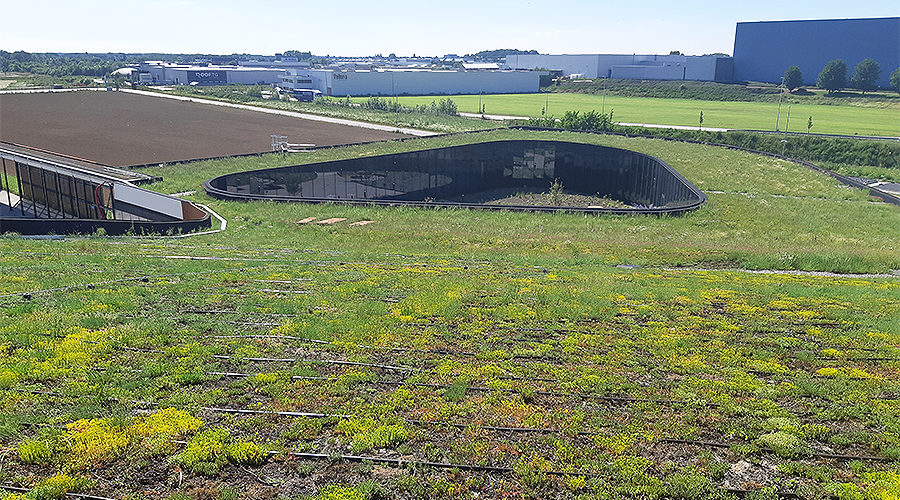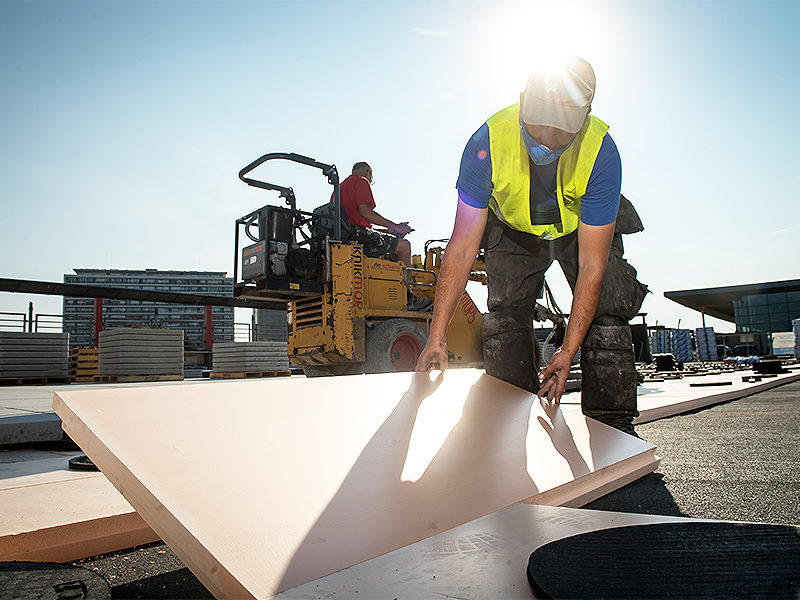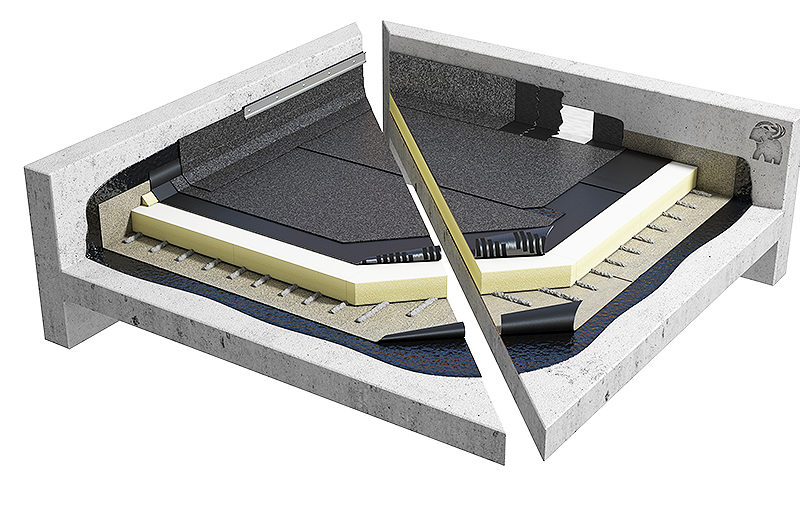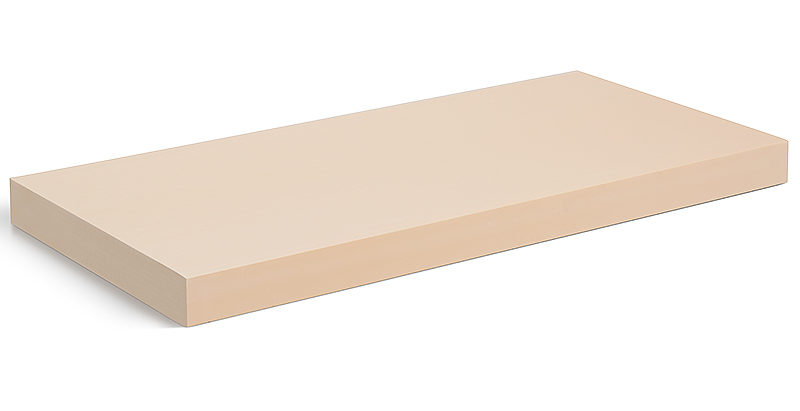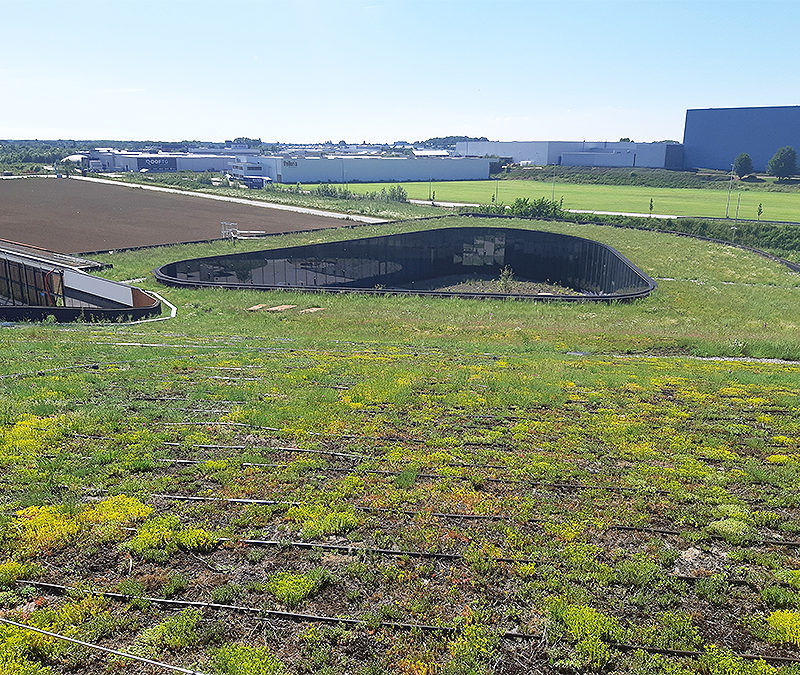When it comes to flat roof installations, choosing the right insulation material is crucial for achieving optimal thermal performance, moisture resistance and long-term durability, as Soprema explains.
Soprema
Among the various options available, extruded polystyrene (XPS) insulation stands out as a superior choice. Its unique properties and benefits make it an ideal solution for flat roof applications. Here’s why:
Thermal performance
To achieve effective thermal performance in any construction project, there are some key considerations during the design phase. This phase also establishes the foundation for evaluating energy and carbon reduction – a critical requirement in today’s construction and renovation industry to comply with Building Regulations.
For flat roof schemes, several significant factors must be taken into account. These include the building’s location, the impact of rainwater cooling and the utilisation of the products’ designed thermal conductivity. Neglecting these essential aspects in a project can result in inaccurate U-value calculations and a deficiency in the building’s overall performance.
XPS insulation boasts exceptional thermal properties, providing a high level of insulation in a relatively thin profile. It offers a low thermal conductivity, which minimises heat transfer through the roof build up, and helps maintain a comfortable interior temperature. This energy efficiency reduces heating and cooling costs for the building owner over time.
It is advisable to liaise with a trusted manufacturer, such as Soprema, with an experienced team to calculate U-values for each individual project and specification.
Moisture resistance
Flat roof applications are particularly susceptible to moisture infiltration due to their low slope and limited drainage options. XPS insulation is inherently moisture resistant, as it has a closed-cell structure that prevents water absorption.
Unlike other insulation materials, XPS retains its thermal performance even in the presence of moisture. This characteristic is crucial for maintaining the roof’s integrity and preventing the growth of mould and mildew.
Compressive strength
Flat roofs often experience heavy loads from plants, such as air conditioning units or solar panels, as well as environmental factors like snow accumulation. Some flat roofs, such as balconies or terraces, also experience foot traffic, so the materials on the substrate need to be capable of withstanding these loads without deforming or compromising its insulation properties.
The durability of XPS insulation ensures the roof can withstand the rigours of daily use and external forces, maintaining its structural integrity over time.
Long-term dimensional stability
Flat roofs are exposed to temperature fluctuations throughout their lifetime, which can cause expansion and contraction of the roofing materials installed. XPS insulation has excellent dimensional stability, meaning it remains resistant to changes in size or shape under varying temperature conditions. This stability prevents the insulation from shifting or creating gaps within the roof assembly, ensuring consistent thermal performance and preventing potential air leakage points.
Ease of installation
XPS insulation is lightweight and easy to handle, making it convenient to store and install. The rigid XPS can be sourced in various sizes and thicknesses, allowing for flexibility in design and installation. Quick and easy installation also saves time and labour costs, as well as being compatible with different flat roofing systems; providing versatility and compatibility with various construction methods.
XPS solutions from Soprema Soprema’s XPS insulation solutions offer distinct advantages for flat roof applications. The closed-cell structure of SOPRA XPS insulation boards prevents moisture absorption and ensures exceptionally low lambda values.
Our range of XPS insulation boards are designed for demanding insulation applications, including inverted and green roofs, zero-fall roof designs in conjunction with Soprema zero-fall waterproofing systems, floors, walls and below-ground works. The installation process is hassle free, and the boards exhibit outstanding compressive strength.
Our SOPRA XPS range includes XPS 500 and XPS 700, which both deliver impressive load-bearing capabilities, making them highly suitable for insulating rooftop car parks, parking garages and structures that require superior compressive performance. As a manufacturer committed to sustainability, our XPS range is 100% recyclable and produced using climate-friendly CO2 technology.
Furthermore, our dedication to environmental responsibility is recognised by the Building Research Establishment (BRE), as SOPRA XPS SL and XPS 500 has also received a Green Guide Rating A. This rating reinforces the sustainable attributes of our XPS insulation products, further solidifying their suitability for eco-conscious construction projects.
Working hand in hand with Soprema’s XPS solution is its waterproofing offering, Soprema’s Duoflex, which is ideal for inverted flat roof applications. It incorporates a high-quality elastomeric bitumen, which is hot-bonded to the substrate, incorporating fleece within the DuoFLEX Hot Melt system. For hot-melt applications, Duoflex blocks must be heated to 160 to 180°C before application.
Savvy specification
When specifying XPS insulation for your flat roofing project, always liaise with a trusted manufacturer, such as Soprema, which has an in-house technical department, to advise on U-value calculations and to ensure that the solutions fit the specification. Always look out for third-party accreditations, such as BBA, Environmental Product Declarations (EPDs), ISO certification and Responsible Sourcing of Construction Products. Technical datasheets should also be available, alongside declarations of performance for every product.



